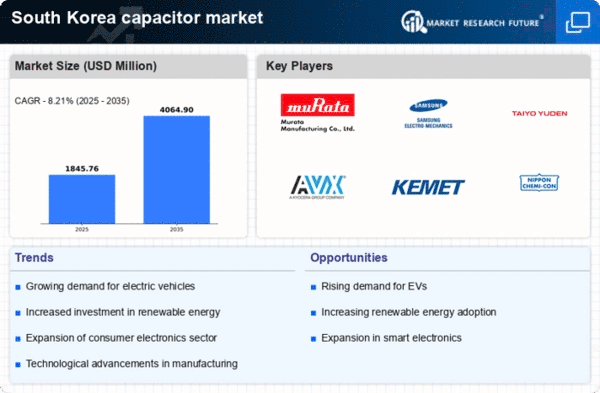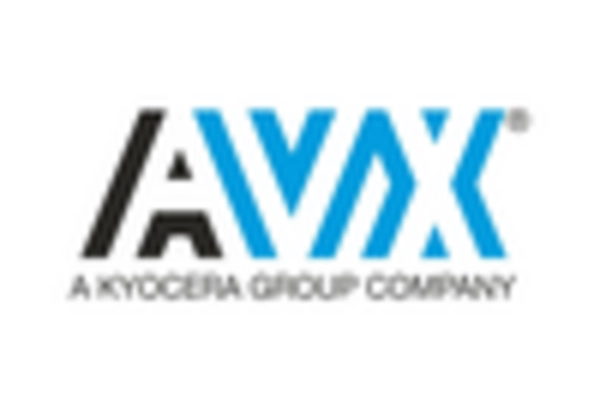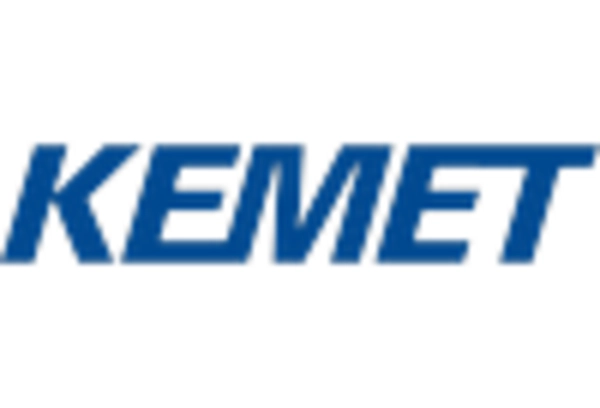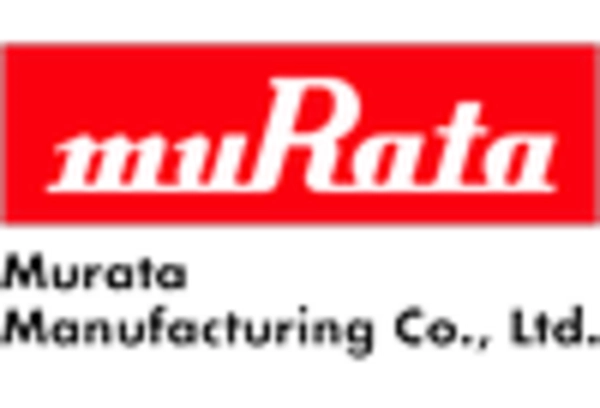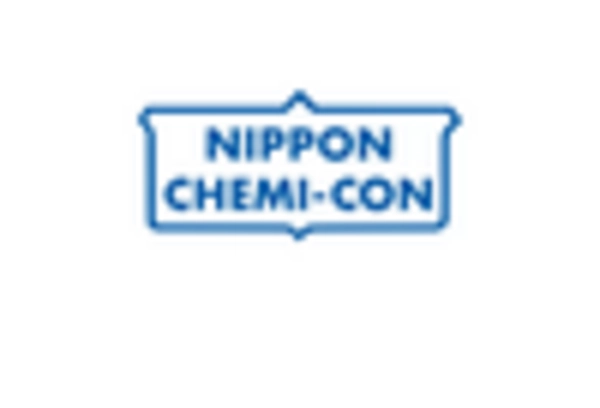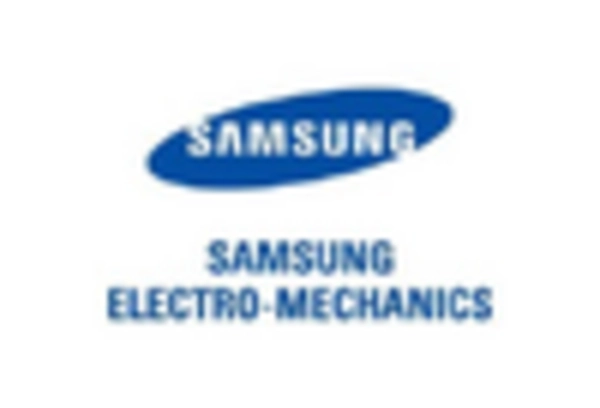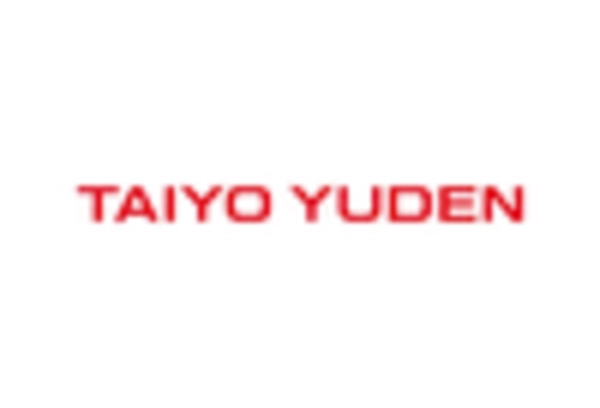Growth in Automotive Electronics
The automotive sector in South Korea is undergoing a transformation, with an increasing focus on electronics integration in vehicles. This trend is driving the capacitor market as modern vehicles require advanced electronic systems for functionalities such as infotainment, safety, and navigation. The automotive electronics market is expected to reach $25 billion by 2025, with capacitors being integral components in these systems. As electric vehicles (EVs) gain traction, the demand for high-performance capacitors is likely to escalate, given their role in energy management and power supply. This growth in automotive electronics not only propels the capacitor market but also encourages manufacturers to innovate and develop specialized capacitors tailored for automotive applications.
Increasing Electronics Production
The surge in electronics production in South Korea is a pivotal driver for the capacitor market. With the country being a hub for major electronics manufacturers, the demand for capacitors is expected to rise significantly. In 2025, the electronics sector is projected to contribute approximately $100 billion to the national economy, with capacitors playing a crucial role in various applications such as smartphones, tablets, and home appliances. This growth in electronics production not only boosts the capacitor market but also encourages innovation in capacitor technology, leading to the development of more efficient and compact components. As manufacturers strive to meet consumer demands for advanced features, the capacitor market is likely to experience robust growth, driven by the increasing need for reliable and high-performance capacitors.
Rising Consumer Electronics Demand
The increasing consumer demand for electronic devices in South Korea is a significant driver for the capacitor market. With a tech-savvy population and a strong inclination towards the latest gadgets, the market for consumer electronics is projected to grow at a CAGR of 5% through 2025. This growth translates into a higher demand for capacitors, which are essential for the functionality of devices such as laptops, smartphones, and wearables. As manufacturers strive to enhance device performance and energy efficiency, the capacitor market is likely to benefit from innovations in capacitor technology, including miniaturization and improved energy density. This trend not only supports the capacitor market but also fosters competition among manufacturers to deliver superior products.
Expansion of Renewable Energy Sources
The transition towards renewable energy sources in South Korea is significantly influencing the capacitor market. As the government aims to increase the share of renewables in the energy mix to 20% by 2030, the demand for capacitors in energy storage systems is expected to rise. Capacitors are essential in managing power fluctuations and ensuring stability in renewable energy applications such as solar and wind. The investment in renewable energy infrastructure is projected to reach $30 billion by 2025, creating substantial opportunities for the capacitor market. This shift not only supports the growth of the capacitor market but also aligns with global sustainability goals, making it a critical driver for future developments in the industry.
Government Support for Semiconductor Industry
The South Korean government's initiatives to bolster the semiconductor industry are having a profound impact on the capacitor market. With plans to invest $150 billion in the semiconductor sector by 2030, the demand for capacitors, which are critical components in semiconductor manufacturing, is expected to rise. This investment is likely to enhance the capabilities of local manufacturers, leading to increased production and innovation in capacitor technology. As the semiconductor industry expands, the capacitor market is poised to benefit from the growing need for high-quality capacitors that meet the stringent requirements of semiconductor applications. This government support not only stimulates growth in the capacitor market but also positions South Korea as a leader in the global semiconductor landscape.

